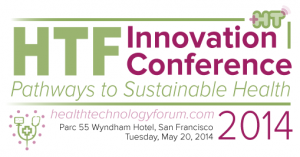 Posted by Raj N. Manickham CPHIMS, Data Architect, Engineer and Analyst
Posted by Raj N. Manickham CPHIMS, Data Architect, Engineer and Analyst
As part of a ramp-up to their annual conference in San Francisco, Health Technology Forum organized a code-a-thon to generate innovative solutions to address patient engagement in behavioral health.
It was a lovely weekend in the Bay Area, and Sunday happened to be Mother’s Day, but that did not detract a dedicated group of participants, volunteers, mentors and judges to make time for a great cause. Here are some interesting vignettes of what I learned:
- Mental health is a huge problem for City governments, often conflated with social services and homelessness.
- As with general healthcare, costs increased dramatically if not addressed in the right setting. At the San Francisco General Hospital alone, about 8500 patients seek care annually as in-patients. At approximately $2000 per in-patient-day, this amounts to a staggering $17 million per year.
- Dr Jan Gurley, one of the judges, pointed out that mental health consultations and records are afforded higher level of confidentiality than regular healthcare, and are not routinely available even to the physicians providing medical care! Mental health records are required to be kept separate from other medical records.
- This is interesting – HIPAA rules give you broad access to your medical records, yet even you do not have the right to access your provider’s psychotherapy notes!
- ARRA/HITECH incentivized and spurred the adoption of EHRs by medical practitioners. Mental healthcare providers, however, were not eligible, and continue to rely on hand-scribbled notes on paper! Anecdotally, this is the state of affairs even at a world-renowned academic hospital right here in the Bay Area!
So picture a population which is cognitively impaired, with varying levels of associated medical co-morbidities, and higher prevalence among the homeless and in the lowest levels of socio-economic status – how do you get them to engage in their own care?
Eleven teams took on the challenge. Besides a generous amount of cash prizes, the leading team will be provided access and incubation with the San Francisco Department of Public Health to elaborate and build out their solution. Results will be announced at the conference on May 20 in San Francisco.


